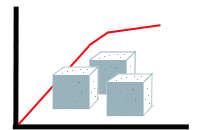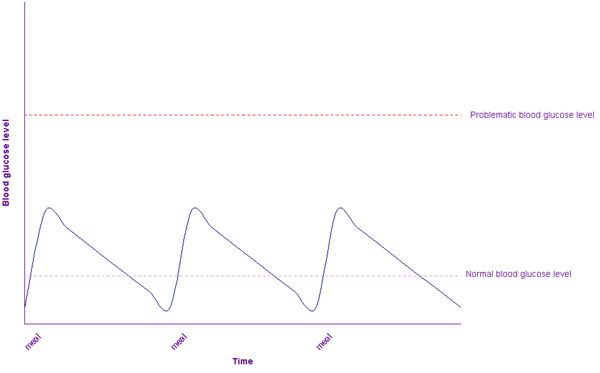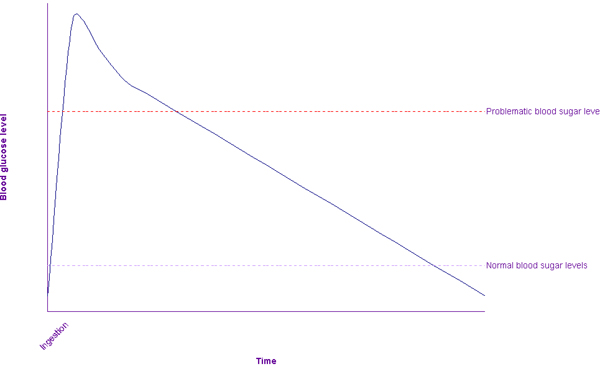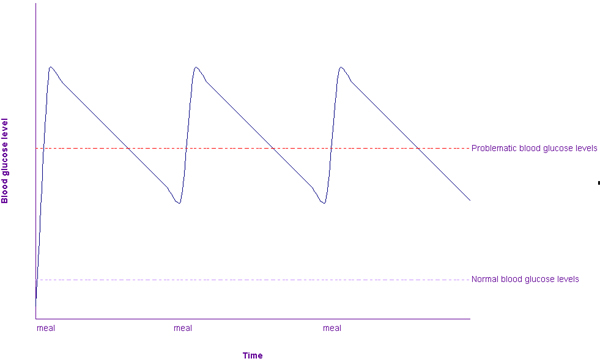 Sugar
and
Sugar
and
Your Degu

|
|
|
|
So, degus can't have sugar on a regular basis. But why? Here it is, in black and white (and purple!): |

Figure
1- Demonstrating the rise and fall (oscillation) of degu blood glucose (sugar)
levels around a normal "safe" level whilst consuming a regular diet
LOW in sugar.
|
^Figure 1 (above) shows a typical blood sugar trace for a healthy degu on a regular, low sugar diet. As shown, the blood glucose level is lowest before the degu eats a meal. After this, the degu digests any carbohydrates contained in the food and converts them into sugar. This causes a rise in blood sugar above the normal level, but never to the problematic threshold. Gradually, the degu's "insulin" causes the blood sugar levels to drop back to normal, then as the degu becomes hungry again the whole cycle repeats. It's worth pointing out here that even non-sugar diets can have small amounts of sugar extracted from them when the degu digests the carbohydrates. |

Figure
2- Demonstrating the rise in blood glucose levels in the degu due to the
singular ingestion of a food containing sugar.
|
^Figure 2 (above) shows the large rise in blood sugar levels caused by a degu eating a sugary food as a one-off event. As shown, the blood glucose starts at the normal level but then rises sharply beyond the problematic level after ingestion of the food. However, the blood glucose level then begins to drop slowly as the "insulin" takes effect, and eventually returns to it's normal level. This simulates what would happen to a healthy degu's blood sugar (kept on a regular no-sugar diet) if given the occasional treat of a piece of apple, for example. Since the blood sugar levels are allowed to return to normal, occasional sugar consumption is unlikely to cause long-term damage to the degu's health. |

Figure
3- Demonstrating the oscillation of degu blood glucose levels around a
problematic "dangerous" level whilst consuming a regular
SUGAR-CONTAINING diet.
|
^Figure 3 (above) shows the typical blood sugar trace of a degu regularly consuming a diet containing sugar. As shown, the trace starts at a normal level initially, but upon eating the first meal, the blood glucose rises above the problematic level. "Insulin" takes effect and the blood sugar level begins to fall below the problematic level, but before it has time to reach normal levels, the next meal is consumed, again boosting levels up beyond the problematic zone. If this diet continues, the degu's blood sugar levels will almost never be able to return to normal- the result is a degu at very high risk of developing diabetes and cataracts, even kidney problems. |
|
As you can see, sugar by no means has to be excluded from the diet of healthy degus, but moderation is called for. In other mammals, insulin acts much faster than in the degu (for reasons still unclear), allowing animals such as humans to maintain a normal blood sugar level even whilst consuming a regular sugary diet. More information on degus' "insulin" can be found here. |
© Copyright C.V. Long BSc 2004 - 2009; Reproduction with permission only.